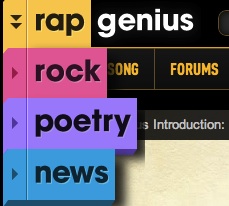 One of the recommended readings for flipping the classroom addresses strategies for getting students to do the reading:
One of the recommended readings for flipping the classroom addresses strategies for getting students to do the reading:
Linda Nilson, “Getting Students To Do the Readings,” Ch. 23 in Part Five of Teaching at Its Best: A Research-Based Resource for Instructors (2010), available as an e-book through the SEU library. (You’ll need to be logged into the SEU library site for this e-book link to work.)
On p. 216 Nilson suggests the strategy, “Teach Students to Write Marginalia and to Highlight or Underline Wisely.” There are several technology tools to support this strategy for both the individual and for groups. For example, diigo, google docs, and iAnnotate PDF are all examples of tools I use individually for highlighting and annotating reading. (I wrote about my reading strategies in this blog post: Digital Reading Practices for the Liberal Arts Classroom.)
Social Annotation
Social Annotation is a strategy for getting students to develop their highlighting and marginalia skills together. Essentially students can build class discussion around a text, in the margins. (As Dorothy Kim has explained debate in the margins is a tradition in the Humanities.) Social annotation can help students model good reading for each other; instructors can also give very specific instructions that encourage good reading practices.
Rap Genius (http://rapgenius.com/)
The social annotation site Rap Genius allows users to do line-by-line annotation of texts while including multimedia in their marginalia. The site also tracks user points to make grading easy. Read more about how one instructor uses it here: Here’s an Instant Way to Jump Start Peer-to-Peer Learning. Also see the Education portion of Rap Genius to see how it can be used to encourage good reading practice and for help getting your texts put up. One of the Technology for Innovative Learning & Teaching Pilot Project Grants for 2014 will focus on using Rap Genius in American Experience courses. Recipients are Catherine Bacon, Assistant Professor, University Programs & Amy Nathan Wright, Assistant Professor, University Programs.
Other Tools for Social Annotation
- Diigo (http://www.diigo.com), especially diigo groups. For one of my favorite examples, see this blog post: “Bringing Web 2.0 to the Classroom“
- Comment Press and Other Collaborative Writing Tools for Word Press: See this run down from Jack Dougherty at Trinity College: http://cowriting.trincoll.edu/
- Hypothes.is (http://hypothes.is/): Haven’t tried this one but I heard about it last month at THATCamp Leadership.
- Classroom Salon (http://www.classroomsalon.com/): Produce heat maps of annotated passages and tag your annotations.
